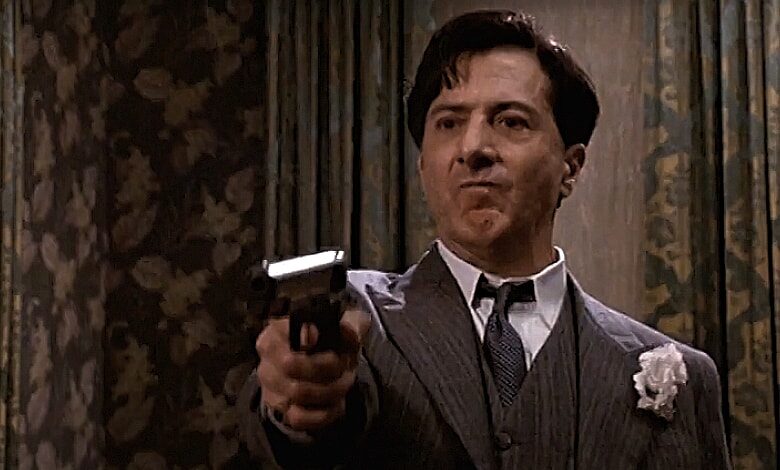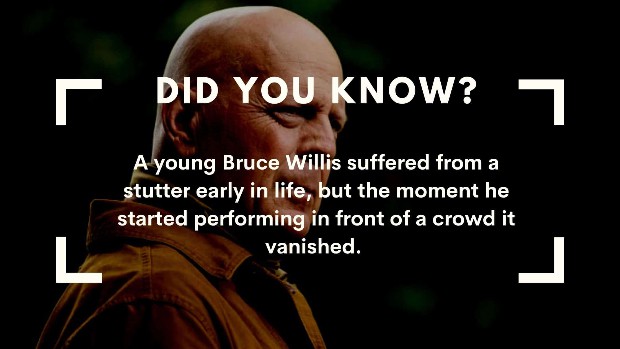
Robert Benton’s “Billy Bathgate” (1991) is set in New York of the 1930s, when the streets were riddled with gangsters.
Loren Dean plays Bathgate, an idealistic young teen who wastes time with his friends and girlfriend (Moira Kelly in a near-silent role). Bathgate’s talent for juggling catches the eye of the notorious criminal Dwight “Dutch” Schultz, played by Dustin Hoffman, who gives the kid an appreciative audience and money for his efforts.
Seeing an opportunity he doesn’t want to pass up, Bathgate ingratiates himself into Schultz’ inner circle. Schultz’ volcanic temper and tendency to murder anyone who irritates him makes Bathgate realize that the easy money earned in the presence of mobsters includes having to help dispose of the bodies they leave behind.
I read E.L. Doctorow’s 1989 novel at just the right moment, as the title character was nearly the same age as me. It’s a great, richly detailed book, combining real figures with fictional characters and scenarios, Doctorow’s blend that marked his “Ragtime” (the book and the film it inspired).
I miss the paperback novel of “Billy Bathgate” I owned, in which the cover sported “bullet holes” that revealed a peak at a violent image beneath the book jacket (a perfect visualization of Bathgate’s perspective of Schultz’ world).
Doctorow’s novel has a scale and depth the movie, despite a $40 million budget, can never match.
The screenplay, by no less than Tom Stoppard, cuts lots of corners from Doctorow’s novel, though the essence of the story remains. Doctorow’s literary approach of combining historical and fictional characters came off better in the novel. A longer, more thorough remake would be a welcome choice.
Nevertheless, while Benton’s film was a high-profile flop in theaters, its absorbing and restrained, deserving of a second look. Benton has always been a noted actor’s director and, fittingly, this is a smartly crafted, character driven performance piece.
At the center is Hoffman, who was trying to reconfigure his career post- “Ishtar.” I greatly admire Hoffman’s work here, as he strips away anything remotely likable or fatherly about Schultz, loses the twinkle in his eye (which makes him so endearing in other films), and embraces playing a total bastard.
Schultz is an ugly, irredeemable character, and Hoffman doesn’t editorialize or humanize him.
Bruce Willis, in a surprising extended cameo, is excellent as Schultz’s former friend, Bo Weinberg. Willis is especially moving when evoking the brokenness in Weinberg during his agonizing final moments.
Coming off of “Hudson Hawk” a few months earlier, Willis likely felt having his feet drying in cement was a breeze compared to reading reviews for his previous movie. Willis’ work in “Billy Bathgate,” like his performances in “In Country,” “Mortal Thoughts” “Pulp Fiction” and “12 Monkeys,” are among his absolute best.
It’s worth noting that Willis also co-starred in a later Benton work (and a personal favorite, once-a-year watch for me) “Nobody’s Fool” (1994), in which the former John McClane is once again paired against a legendary actor (Hoffman here, Paul Newman in “Nobody’s Fool”).
When Willis loves his director and fully engages with the material, he’s wonderful.
Dean was put in an impossible position with this film, landing not just the lead role but the title character in a high profile, would-be gangster epic. The actor overcame the film’s brief run in theaters and has had a long running career subsequently.
Dean is very good in this, playing every scene is naturally as possible and never tries to match or upstage his co-stars, which was the right choice. Nicole Kidman has a showy role as Schultz’ newly acquired moll and, like Dean, she doesn’t try to steal the film but instead adds dramatic weight by playing it real and never resorting to histrionics.
The great Steven Hill just about walks away with the entire movie – his lived-in and complex portrayal of Schultz’s longsuffering, seen it all side man has a gravity that is different from the rest of the film.
“Billy Bathgate” isn’t an action movie or even a particularly attractive looking film. Benton avoids the visual grandeur or scope of anything resembling Coppola or Scorsese. If this resembles any film, it’s the legendary James Cagney thriller “The Public Enemy” (1931), which also, plain and simple, told us that crime absolutely does not pay.
Benton is disinterested in showy optics, as the sets and costumes are vivid and large scale but appear authentic instead of beautiful.
Disney was in over their head with this one, attempting a gangster classic a year after “Goodfellas” had become a milestone in the genre. The newspaper ads put out by the studio deemed this “The Motion Picture Event of the Season” and “The Movie Event of the Year,” which is exactly the kind of misguided self-promotion that makes everyone want to give it a poke in the eye.
Perhaps the biggest shame is that, despite all the hype and prestige the film carried, it didn’t even come close to opening at the number one spot; Benton’s film was beat out by, of all films, Wes Craven’s “The People Under the Stairs” (which, to be clear, is still a much better film than “Billy Bathgate”).
“Billy Bathgate” is essentially a forgotten work, deemed a flop and tossed aside as quickly as Weinberg is eventually kicked into dark waters. Because the film feels so intimate, leaning in on characters as they try to work through each day (a signature touch of Benton’s films), there’s no genre baggage or expectations of a massive sequence, which is never coming anyway.
This is about how Bathgate’s sharing the company of immoral degenerates will either give him the strength to leave or become like the criminals he admires.
RELATED: Why We Didn’t Need a New Cut of ‘Godfather III’
“Billy Bathgate” is primarily about the title character’s ability to work his way through any room and, in some cases, just barely escape the danger he faces. I believe guns are fired in exactly two scenes, and Benton doesn’t treat those moments as demonstrative set pieces.
There is much here to savor, like the sad willingness of Kidman’s character to carry on after Weinberg has been murdered and she becomes Schultz’s prisoner. This was the first time I ever saw Stanley Tucci and he makes a slimy, cunning Charles Luciano. Steve Buscemi, Mike Starr, Kevin Corrigan and Frances Conroy make strong impressions in small supporting roles.
Bathgate is a tourist in this world, a servant and obsequious bystander whose willingness to help out under any circumstance allows him, and us, telling glimpses of the monstrous Schultz. This is what makes the final scene so perfect, as Bathgate emerges from yet another close brush with death and casually walks away.
The kid sure is lucky.

